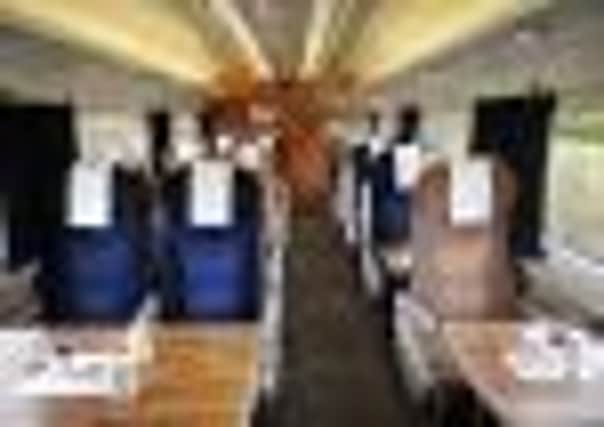Call for ban on first class travel perks


Senior MSPs have demanded an end to the use of “highly questionable” first class rail fares as it emerged that Scottish Enterprise paid for more than 170 tickets to allow its employees to sit in first class carriages.
The scale of the use appears to flout both Scottish and UK Government guidelines, in which civil servants are given “very strong guidance” to travel standard class.
Advertisement
Hide AdAdvertisement
Hide AdThe Scottish Government said that the use of first class travel for official business was a matter for individual quangos, but that its policy was for its own directly-employed civil servants to travel in standard class other than in “exceptional circumstances.”
First class travel has even been banned by some UK ministries, such as the International Development department, where civil servants were disciplined for breaking the rules on travel costs last year.
In all other departments, all first class journeys require approval by the departmental director general.
Tory MSP Alex Johnstone last night called on the Scottish Government to introduce similar measures, insisting it was an “extremely good route to go down”.
Scottish Liberal Democrat leader Willie Rennie also called on SNP ministers to consider a ban, claiming that travelling first class at the taxpayers’ expense sent a “poor” message to Scots.
The MSPs comments follow a Freedom of Information request which reveals that Scottish Enterprise, the body charged with promoting investment in Scotland, spent more than £14,000 on first class travel in just over 18 months.
Scottish Enterprise’s chief financial officer, Iain Scott, said that first class rail travel was not “generally” permitted, adding that “it is only allowed in some exceptional cases.”
However, documents obtained under Freedom of Information legislation showed that Scottish Enterprise paid for more than 170 first class rail tickets for civil servants on official business during a 19-month period.
Advertisement
Hide AdAdvertisement
Hide AdThe journeys cost £4,333.34 between September 2010 and March 2011 and £9,965.16 between April 2011 and March 2012.
The highest-priced individual journey was a £294 return journey from Edinburgh to London King’s Cross.
The revelations about first class travel follow reports that Scottish Enterprise spent £125,000 on staff “team-building” games that included water pistol contests and space hopper races.
Labour MSP Neil Findlay called on SNP ministers and Scottish Enterprise to “get a grip” on its spending.
He said: “It appears that Scottish Enterprise officials can’t bring themselves to sit in standard class beside the very tax payers who pay their wages and fund their travel.
“The management of this organisation needs to get a grip. First it was toys and games on the public purse, now executive travel. This is scarce public money they are wasting.”
Rennie also called on SNP ministers to “revise their policy” and to look at a blanket ban on first class travel for all civil servants.
Rennie said: “First class travel in challenging economic times is highly questionable. Scottish Enterprise and the Scottish Government need to revise their policy on first class travel to reflect the times. The overall total cost is not excessive but the message it sends is poor.”
Advertisement
Hide AdAdvertisement
Hide AdJohnstone added: “Civil servants need to show a level of self discipline and not travel first class. The example of the UK Government and the International Development Department in particular is an extremely good route to go down”.
A Scottish Government spokeswoman said: “Travel within Scotland and the UK should be standard class, other than in exceptional circumstances where it makes sense to book business class for long journeys, with specific opportunities for work.”
But Scottish Enterprise’s chief financial officer insisted that the quango restricted the first class travel made by its employees.
He said: “We don’t generally permit first class travel. It is only allowed in some exceptional cases, when staff have to undertake confidential work while travelling in Scotland or for lengthy rail journeys that are more cost effective than flying.
“We continually look for ways to reduce our costs and environmental impacts. Claims for mileage for example have halved in recent years as a result of more staff using public transport.
“Our staff need to be mobile in order to do their job whether it is meeting Scottish companies, attending key business events or travelling overseas to sell Scotland.
“In the last year alone, our staff helped companies to increase turnover by £1.2 billion and secured £200 million of inward investment, helping to create or safeguard more than 7,000 jobs.”